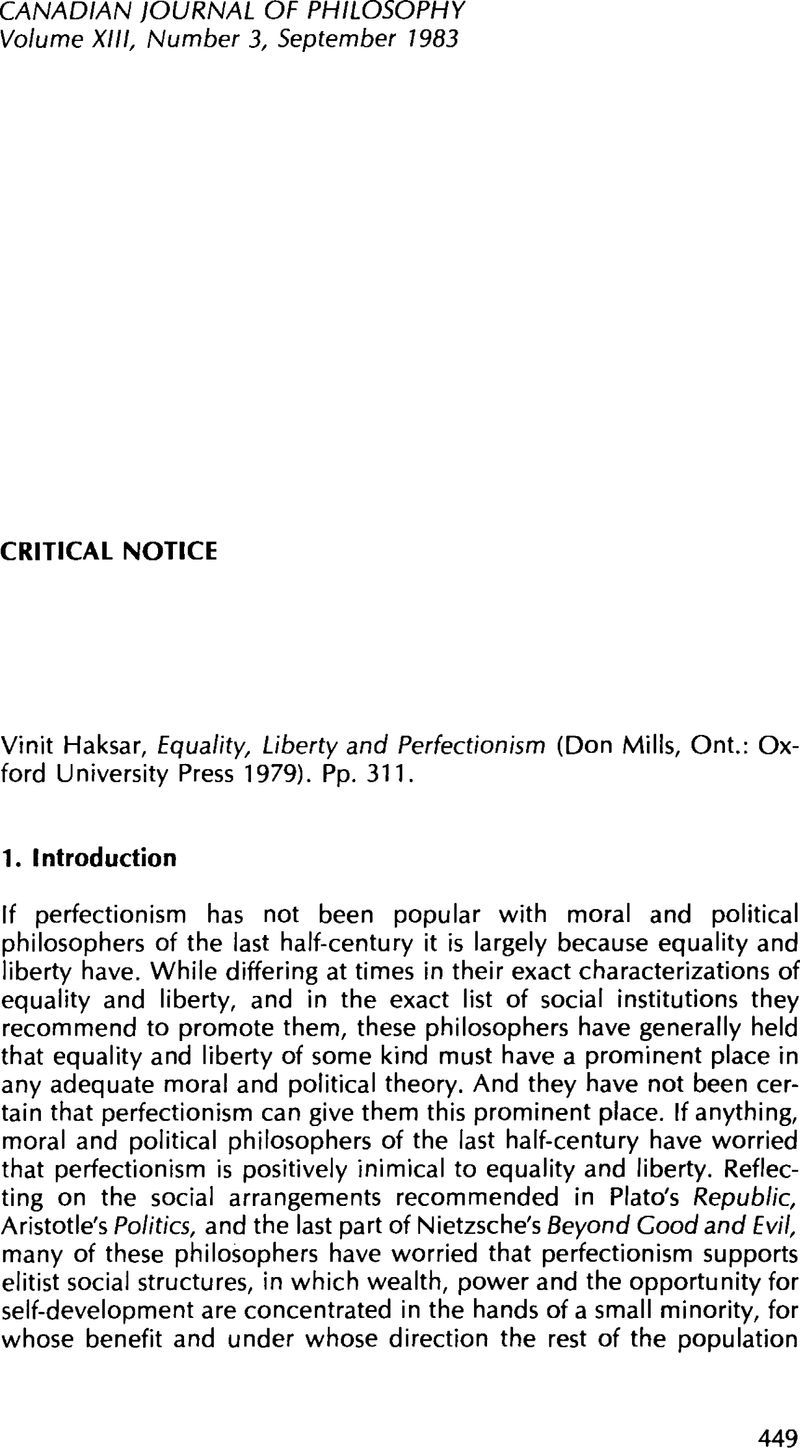No CrossRef data available.
Article contents
Vinit Haksar, Equality, Liberty and Perfectionism (Don Mills, Ont.: Oxford University Press 1979). Pp. 311.
Review products
Published online by Cambridge University Press: 01 January 2020
Abstract

- Type
- Critical Notice
- Information
- Copyright
- Copyright © The Authors 1983
References
1 Numbers in brackets refer to pages in Equality, Liberty, and Perfectionism.
2 They will not, of course, always be equal, especially if something like the law of diminishing marginal utility applies to the relation between instrumental goods and perfection. I am sure that something like this law does apply to the relation between instrumental goods and perfection, but I am also sure that it is nowhere near strong enough to completely cancel out the inegalitarian tendencies of perfectionism discussed in the text.
3 On this see Simmel, Georg Schopenhauer and Nietzsche (Leipzig: Duncker und Humboldt 1907), 226Google Scholarf.; and Kaufmann, Walter Nietzsche: Philosopher, Psychologist, Antichrist, 4th ed. (Princeton, NJ: Princeton University Press 1974), 151Google Scholar.
4 Rawls, John A Theory of Justice (Cambridge, MA: Harvard University Press 1971), 510Google Scholar
5 If rights theories presuppose the simple view then the truth of a rights theory entails the truth of the simple view; if rights theories are supported by the simple view then the truth of the simple view entails (or at least makes more probable) the truth of a rights theory. Haksar does not distinguish these (importantly different) theses in his discussion.
6 Taurek, John ‘Should the Numbers Count?’, Philosophy and Public Affairs, 6 (1976-77) 293–316Google Scholar
7 Parfit has stressed this factual point in ‘Personal Identity,’ Philosophical Review, 80 (1971) 3-27, pp. 15-16; and ‘Lewis, Perry, and What Matters,’ in Rorty, Amélie ed., The Identities of Persons (Berkeley: University of California Press 1976), 91–107Google Scholar, p. 98. For evidence that Haksar has missed it see especially his remarks about the tyrant and his sons and grandsons on p. 115.
8 Rawls, 426
9 Barry, Brian The Liberal Theory of Justice (Oxford: Clarendon Press 1973), 28Google Scholar
10 Barry, Brian Political Argument (London: Routledge and Kegan Paul 1965), 304Google Scholar


